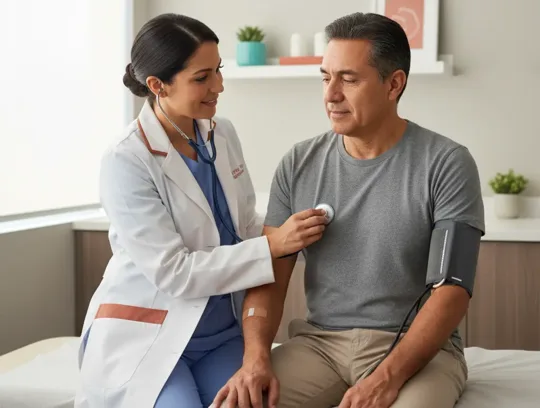April is Stress Awareness Month. It’s a time for healthcare institutions to assess how prepared they are to manage stress in patients. Chronic stress worsens conditions like hypertension, heart disease, and diabetes. Unfortunately, symptoms often remain untreated until emergencies occur. This leads to high costs and poor patient experiences. Remote Patient Monitoring (RPM) changes this dynamic. It provides real-time data on blood pressure, heart rate, and sleep. Providers can step in early and prevent stress from becoming a serious issue. Consequently, this reduces healthcare spending and saves lives. RPM also boosts patient satisfaction by offering proactive care.
The Financial Burden of Stress-Related Chronic Conditions
Chronic diseases drive 90% of the U.S. healthcare spend, which now totals over $4.5 trillion annually. Stress plays a big role in these illnesses. It increases ER visits and hospital stays. The average ER visit costs around $1,000. A hospital admission may exceed $3,800. These expenses strain both patients and providers. However, RPM helps reduce this financial burden. It tracks key vitals and alerts professionals before a crisis occurs. That allows for timely and efficient responses. This kind of early action avoids hospitalizations and unnecessary tests. As a result, providers use fewer resources while still improving outcomes.

Enhancing Patient Engagement and Compliance Through RPM
RPM does more than just track vitals. It creates stronger bonds between patients and providers. Patients who see their data become more involved in care. That leads to better treatment adherence. For example, studies show RPM reduces hospital readmissions by 49%. That’s a huge step forward. Patients feel more in control and motivated to follow medical advice. In turn, providers get clearer insights into daily patterns. This feedback loop drives personalized care and better decisions. Ultimately, the technology empowers patients. It helps them manage stress and improve their lives.
Technological Tools Facilitating Effective Stress Monitoring
RPM uses tools like blood pressure cuffs, heart monitors, and sleep trackers. These devices show early signs of stress-related health problems. With this technology, doctors don’t wait for symptoms to escalate. Instead, they act quickly. This means fewer ER visits and lower costs. RPM also helps connect physical signs to emotional well-being. That’s especially useful in stress care. Patients with anxiety or burnout often don’t notice physical symptoms. RPM bridges that gap. It gives real-time insights that guide treatments. These improvements can save lives and money.

Esvyda: Optimizing Healthcare with Comprehensive RPM Solutions
Esvyda is a trusted bilingual platform focused on managing chronic conditions through real-time patient monitoring and smart analytics. Our system tracks key vitals like blood pressure and heart rate, helping healthcare providers take action before emergencies arise. In addition to live monitoring, Esvyda offers patient engagement tools and clinical reports, improving care coordination and communication. Providers can boost revenue by meeting value-based care metrics and reducing hospitalizations. Also with customizable alerts, regular progress updates, and secure patient-provider messaging, Esvyda ensures better outcomes and satisfaction. The platform is built to support smooth care transitions and real-time decision-making. It’s a reliable, cost-effective solution that empowers both patients and providers in today’s complex healthcare environment.
Download this artice
RPM Mitigating Stress to Reduce Future Costs!
Chronic stress worsens conditions like hypertension, heart disease, and diabetes. Unfortunately, symptoms often remain untreated until emergencies occur. Esvyda tracks key vitals like blood pressure and heart rate, helping healthcare providers take timely actions.
Click Here


8 responses to “RPM Mitigating Stress to Reduce Future Costs”
My doctor says stress is spiking my blood pressure, but ‘just relax’ isn’t a solution. How can RPM actually help? 💙
Our RPM tracks tracks blood pressure in real time and suggests personalized care goals (according to your doctor’s guidelines) aiming to lower BP in 8 weeks. See how RPM works: https://esvyda.com/services/remote-care/
As an employer, how does stress monitoring ROI compare to traditional wellness programs?
For every investment on RPM stress tracking and management tools, in the mid and long-term, employers save in absenteeism and ER costs.
No way I’m letting my boss see my stress data. How’s this anonymized?
Niters, rest assured that employers only see aggregate trends, never individual data. 😎
Between caring for my mom and working full-time, I’m exhausted. Can RPM really help someone like me who doesn’t have time for another app?
Absolutely Duaney. Our RPM works passively, just wear the device or take the readings as prescribed, and your care team gets alerts if stress levels are dangerous. No extra time needed.